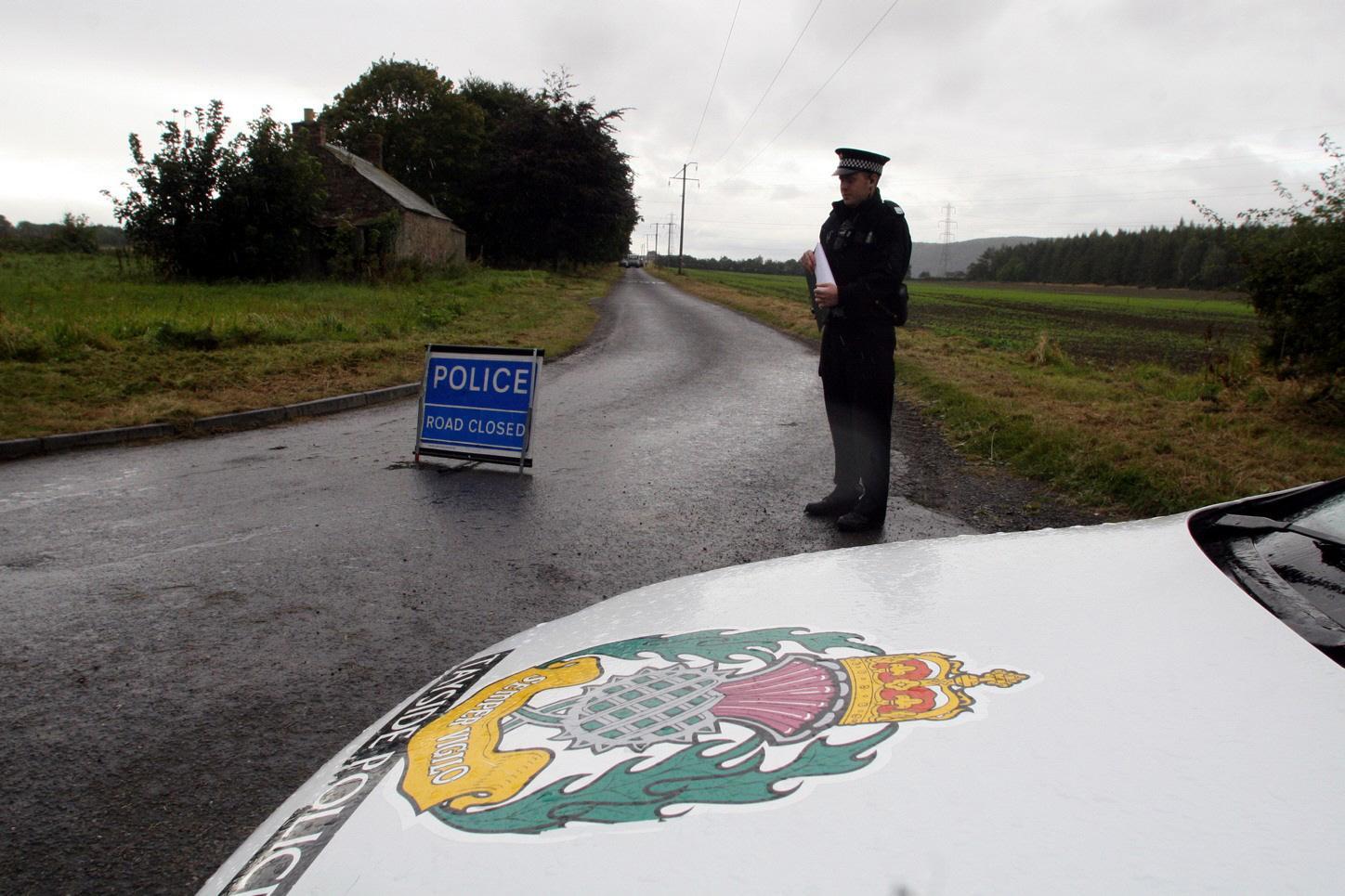There were mixed emotions last night for the man who led the hunt to bring the killer of Perthshire man Adam Alexander to justice.
Detective Chief Superintendent Roddy Ross spoke after Thomas Pryde (38), of Scone, was jailed for 10 years at the High Court in Edinburgh yesterday for killing his friend and fellow biker more than a decade ago one of just a handful of criminals to be convicted without the victim being found.
Pryde admitted the crimes of culpable homicide and concealing his victim’s body when he appeared at the High Court in Glasgow last month and sentence had been deferred for background reports.
Mr Alexander (39) was reported missing from his Errol home in November 1999, but it was not until 2007, when Pryde’s wife told police he had confessed the killing to her, that the investigation into the disappearance became a murder hunt.
Mr Ross said he is glad Pryde has been brought to justice and still hopes the victim’s body will be found, more than a decade after his disappearance, and he insisted the inquiry is “not over yet.”
“While the news of Pryde’s sentencing is welcome, our thoughts are very much with Adam’s mother and wider family at this time,” he told The Courier.
“It has been a long and extensive inquiry for everyone involved and one that is not over yet.
“Inquiries are continuing to locate Adam’s body,” Mr Ross continued. “Only then will Adam’s family begin to see an end to the nightmare they have been living with since 1999.”
After his arrest, Pryde had attempted to guide officers to the site where he believed he had buried Mr Alexander’s naked body near Errol. However, a four-month dig, almost eight years after the fatal blows were struck, proved fruitless.
Led by Professor Sue Black, the world-renowned forensic anthropology specialist, it centred on a site near Errol brickworks and also investigated similar areas.
“As far as we are aware, Pryde took us to where he thought he had buried Adam Alexander,” Mr Ross said. “I am absolutely satisfied Adam’s body is not there.
“Professor Black’s team carried out the excavation. She tells me there is no body there and I believe her.”
Mr Ross feels the body is somewhere in the Carse of Gowrie, but Pryde got the exact location wrong. “I could not really say whether or not he has lied, but he is certainly adamant about that specific site,” he said.
“We searched very thoroughly and in likely places close to that site, but we have no other information that would lead us to do any digging anywhere else.”‘Challenging’Mr Ross previously said the case was one of the most “challenging” he had ever seen, comparing it to the Templeton Woods murders in Dundee in its complexity.
He still hopes members of the public will come forward with information that could lead to finding Mr Alexander’s body.
Sentencing, Lord Bracadale told Pryde, “This happened in 1999 and to this day Mr Alexander’s body has never been found, despite efforts you have made and continue to make in that regard.
“The anxiety which his disappearance must have caused to his family and the years of not knowing what happened to him and now the knowledge his body lies somewhere in waste ground must all be very hard to bear.”
The judge said he considered the appropriate starting point for these crimes would have been 14 years but, because Pryde admitted his guilt at an early stage, he would reduce the sentence to 10 years.
Lord Bracadale recalled that the two men got into an argument, which developed into a fight in the garden of Mr Alexander’s home at Atholl Cottage, Errol.
During that fight Pryde hit his victim with an iron bar, bundled the body into a car and drove home to get a shovel, before stripping his victim, burning his clothes and burying the body.
In mitigation, defence counsel Ian Duguid QC said that over the past month Thomas Pryde has contacted police in an attempt to provide further information about the location of Mr Alexander’s body.
He told the court that the police investigation is now continuing in the light of the additional information.
He said, “There has been additional information which might provide a more exact location, rather than the wider area which was explored in the past.
Counsel assured the court Pryde would continue to assist police with further inquiries.
Mr Duguid said that the police inquiries into Mr Alexander’s disappearance restarted when his wife made contact with police in January 2007.
Her approach came “in the course of an acrimonious split-up,” and she told them of various activities he had been involved in and gave information to police about these matters.
“The result was police detained and interviewed him in September 2007.”
Pryde made a long confession to police, during which he admitted killing Mr Alexander and burying his body in a field, firing a shotgun at the house of another businessman and setting fire to a Range Rover in an insurance scam.
“The resolution of these matters comes very much as a relief to him because he had been living with Mr Alexander’s death for a number of years. He realises that represents very little consolation to relatives.
“He is conscious of how that family has been living, effectively not knowing the fate of Mr Alexander for a number of years.”
Counsel said Pryde regretted the circumstances of Mr Alexander’s death and whereabouts had “remained a secret for so long.”
Mr Duguid continued, “He has extreme regrets about how other people have been affected, including himself, and he regards this very much as a relief, although the matter was in his own hands up to the point in September 2007.”
“This is a situation where he has expressed his continued willingness to assist police.”
Turning to the day of the killing, Mr Duguid said events were “in no way anticipated or planned.”
